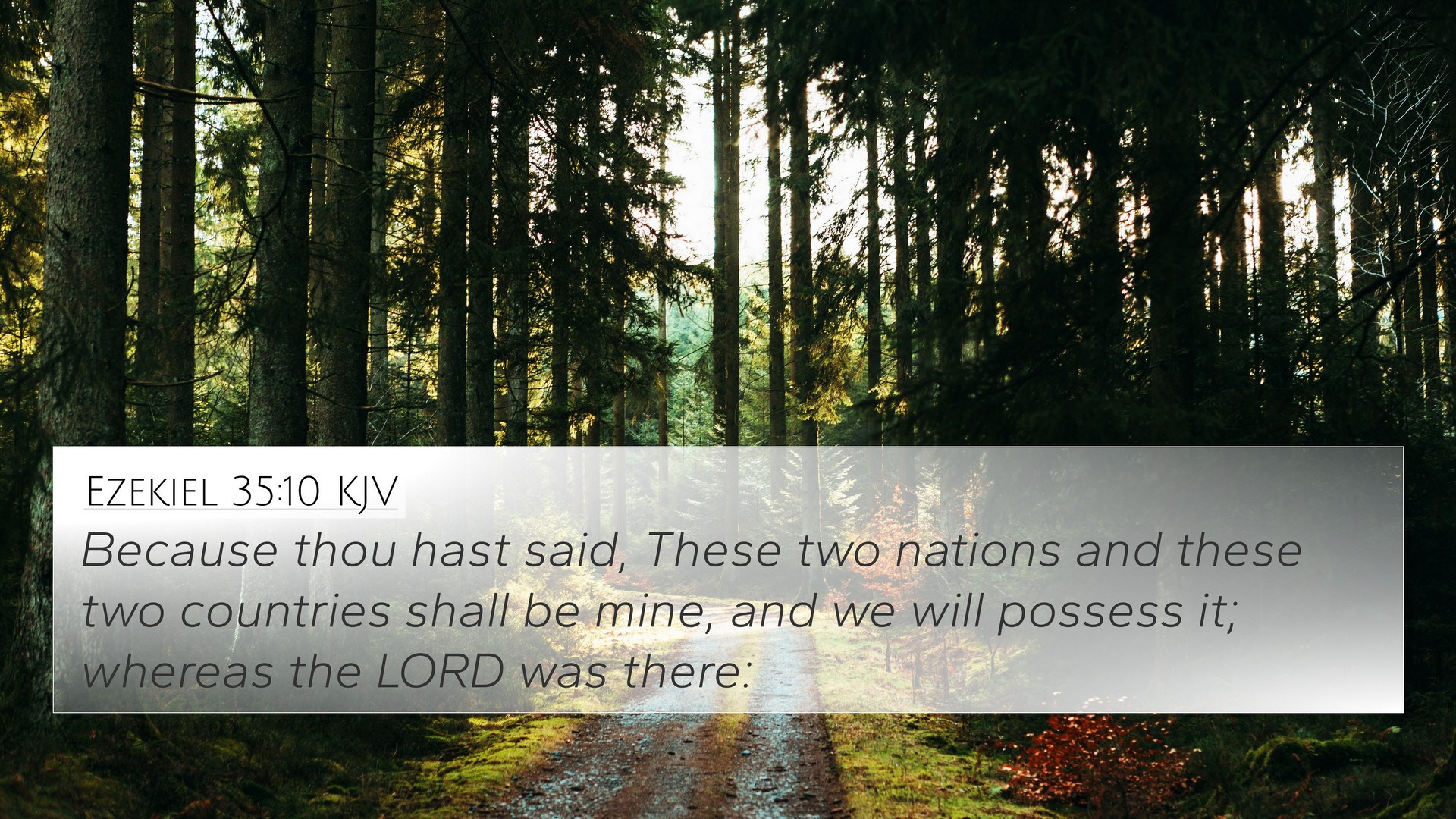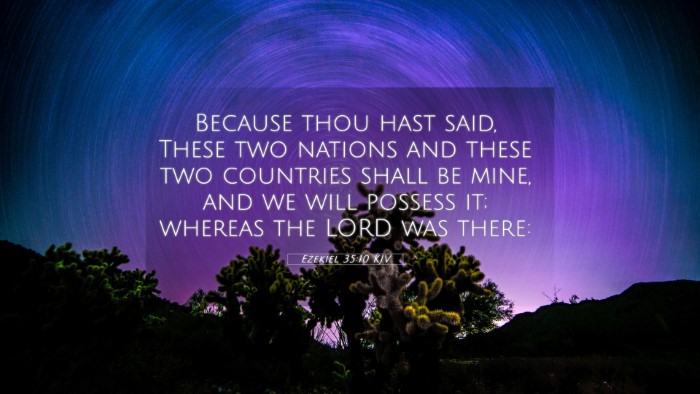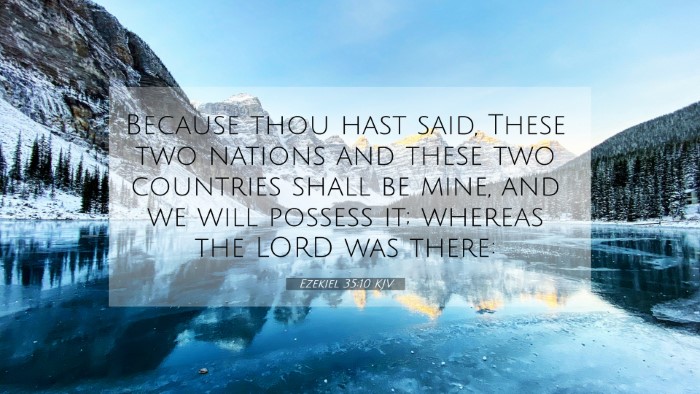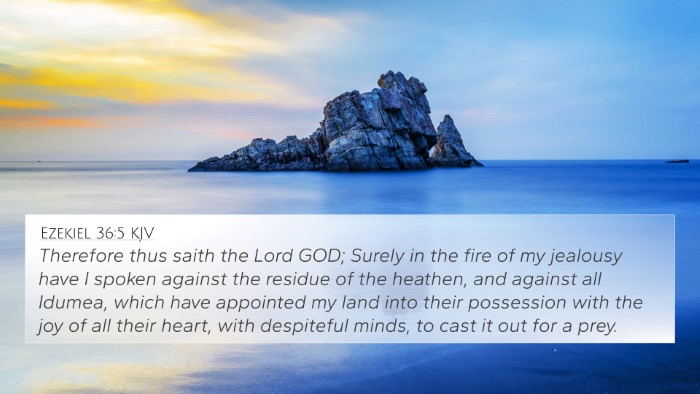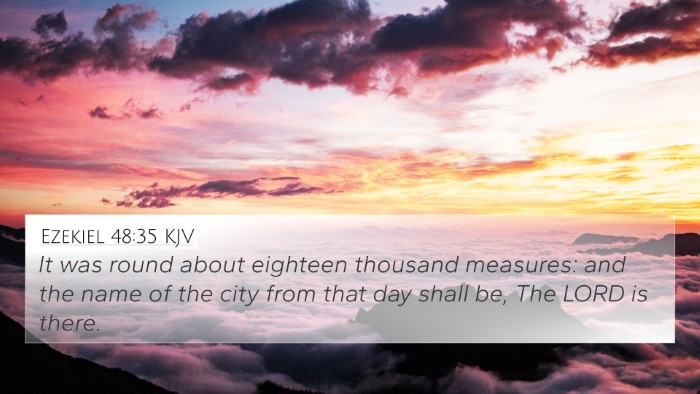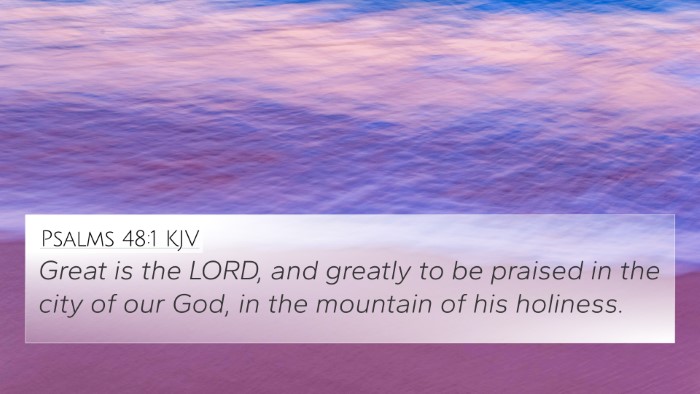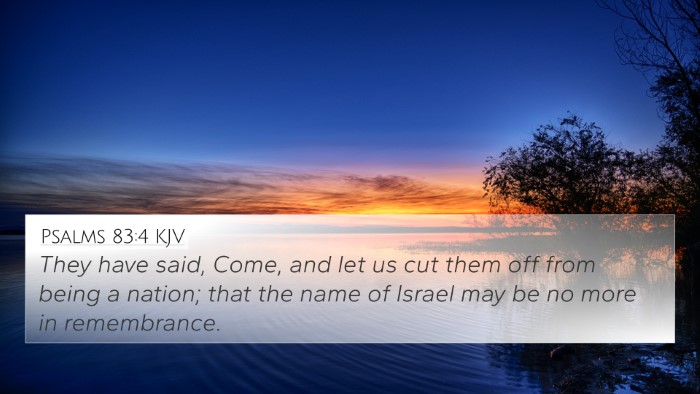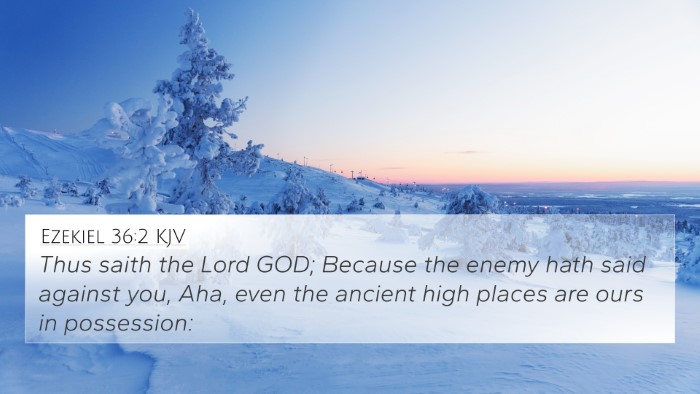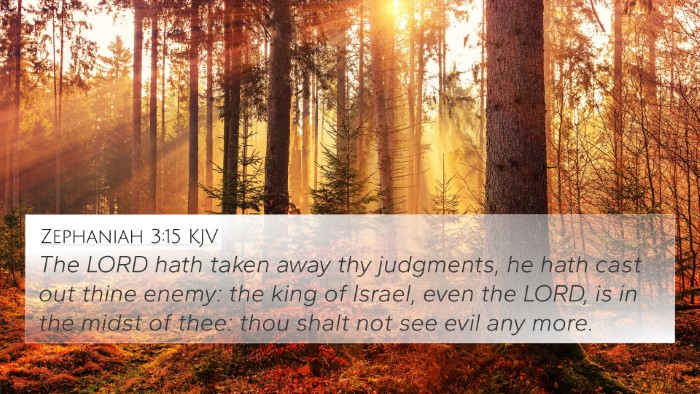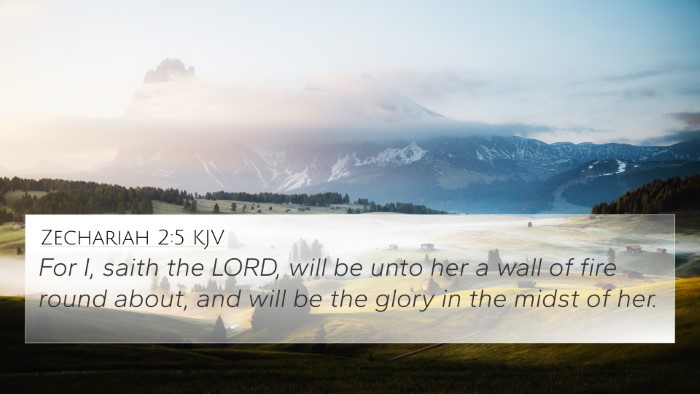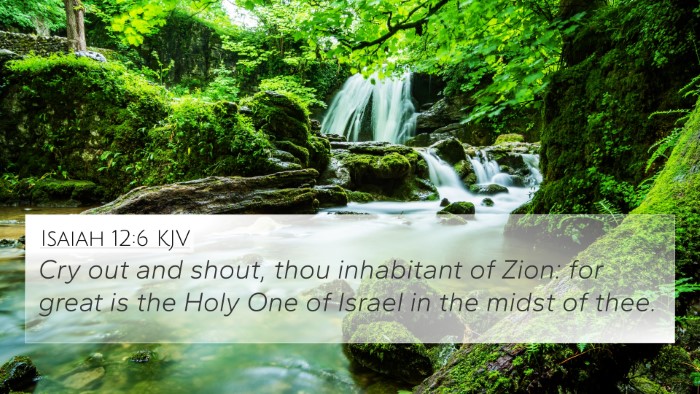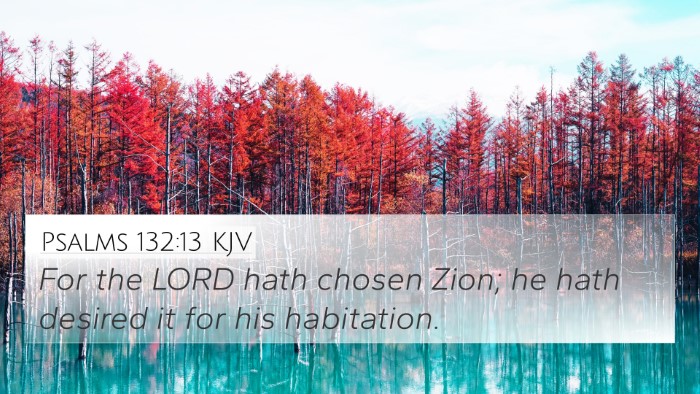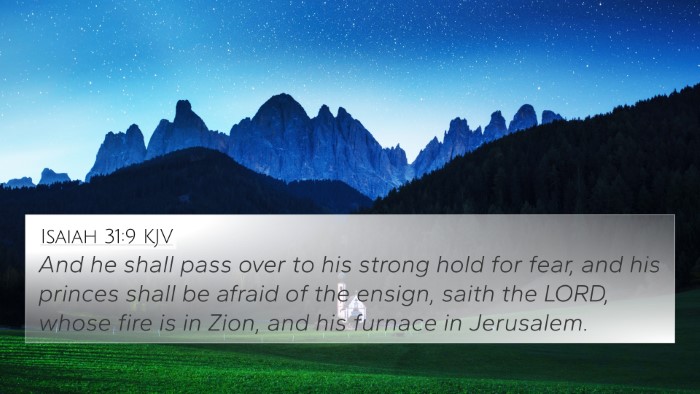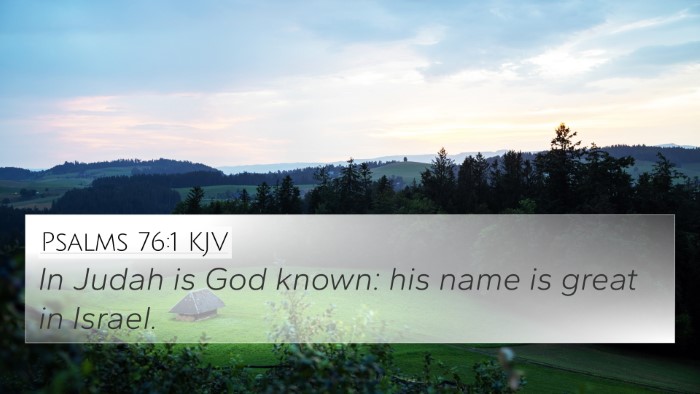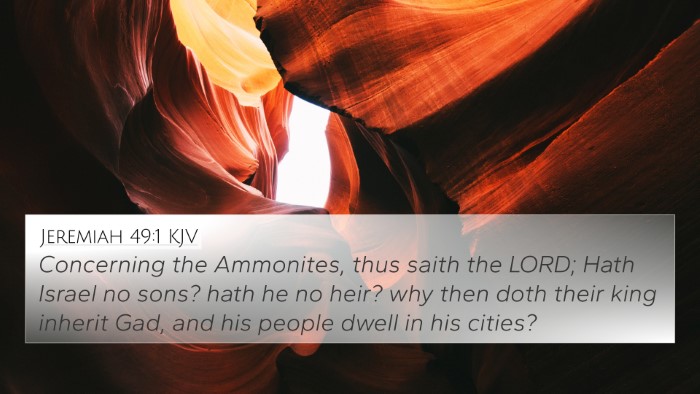Ezekiel 35:10 - Meaning and Interpretation
Ezekiel 35:10 states: "Because you have said, 'These two nations and these two countries shall be mine, and we will possess them,' although the Lord was there." This verse, situated in the prophetic words of Ezekiel, addresses the Edomite nation and their ambitions to seize the land of Israel.
Summary of the Verse
The verse reveals God's response to the Edomites' claim over Israel and Judah, illustrating a broader theme of divine sovereignty and judgment. The Edomites sought to usurp what they believed to be their rightful claim, oblivious to God’s presence and authority over these lands.
Contextual Background
Ezekiel prophesied during a time when Israel was in exile, responding to the circumstances surrounding their oppression. Understanding the historical and cultural context enriches our interpretation of this passage.
Insights from Public Domain Commentaries
-
Matthew Henry:
Matthew Henry notes that the Edomites displayed audacity in their intention to take possession of the lands, particularly as they did so against God's expressed will. He emphasizes the folly of boasting over nations that belong to God.
-
Albert Barnes:
Albert Barnes highlights the assertion of the Edomites regarding the two nations, indicating their presumption. He comments that this claim reflects a misunderstanding of God's sovereignty and the significance of these territories in His divine plan.
-
Adam Clarke:
Adam Clarke interprets the Edomites’ desire as part of a larger narrative of conflict among neighboring nations. He suggests that the claim to the land was not only a territorial ambition but also emblematic of the ongoing enmity between the Israelites and Edomites.
Key Themes and Concepts
This verse embodies several thematic elements that can be cross-referenced throughout the Bible:
- Divine Sovereignty: God's ultimate authority over nations and their destinies.
- Judgment Against Pride: The consequences of nations that misinterpret their power and authority over others.
- God's Presence: A reassurance that despite the turmoil, God is still sovereignly in control.
Cross-References
Several Bible verses provide insight and further understanding of Ezekiel 35:10:
- Obadiah 1:10-16: Describes God's judgment against Edom for their violence against Jacob.
- Isaiah 34:5-8: Proclaims the divine judgment on Edom, emphasizing God’s wrath against their actions.
- Jeremiah 49:7-22: Details the messenger of God announcing doom to Edom and the reasons behind it.
- Ezekiel 25:12-14: Further addresses the judgment upon Edom for taking vengeance against Israel.
- Psalm 137:7: Reflects on the desire for vengeance against Edom and the longing for justice for Jerusalem.
- Lamentations 4:21: Speaks of the joy of Edom over Jerusalem's downfall, leading to prophetic condemnation.
- Malachi 1:2-3: God declares His continuing love for Jacob while showing His disdain for Esau, the father of Edom.
- Romans 9:13: References the love of God for Jacob and hatred for Esau as a means of showing divine election.
- Matthew 21:33-46: A parable illustrating vineyard owners (representing Israel) and God's judgment upon the unfaithful, resonating with themes in Ezekiel.
- Revelation 18:2: Illustrates the fall of Babylon, paralleling God's judgment against nations that oppose Him.
Conclusion
Ezekiel 35:10 offers profound lessons on the consequences of defying God's will and the nature of divine judgment. By engaging with commentaries and cross-references, we can deepen our understanding of scripture and the consistent themes that run throughout the biblical narrative.
Tools for Further Study
For those interested in exploring the connections between Bible verses further, numerous tools are available:
- Bible concordances, providing a comprehensive index of scriptural references.
- Bible cross-reference guides that map thematic connections and parallels effectively.
- Digital resources for cross-referencing Bible study and inter-Biblical dialogue, highlighting interconnections and related themes.
Utilizing these tools can enhance one's understanding and provide clarity when exploring the rich interconnections of scripture.
